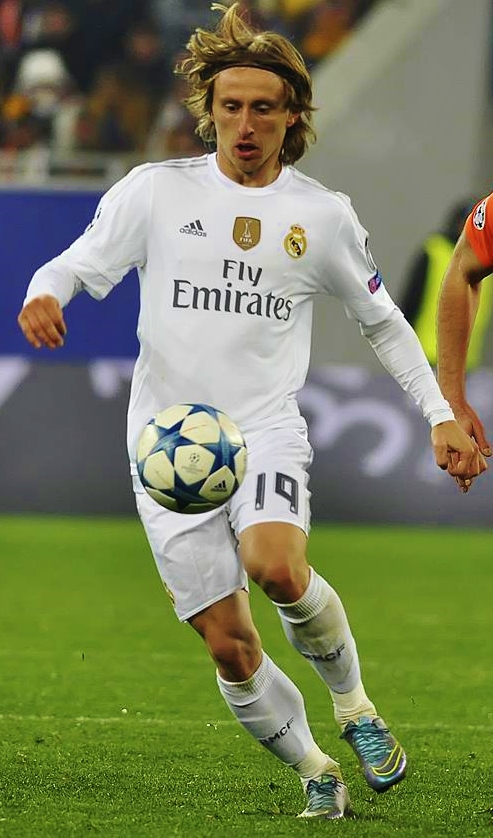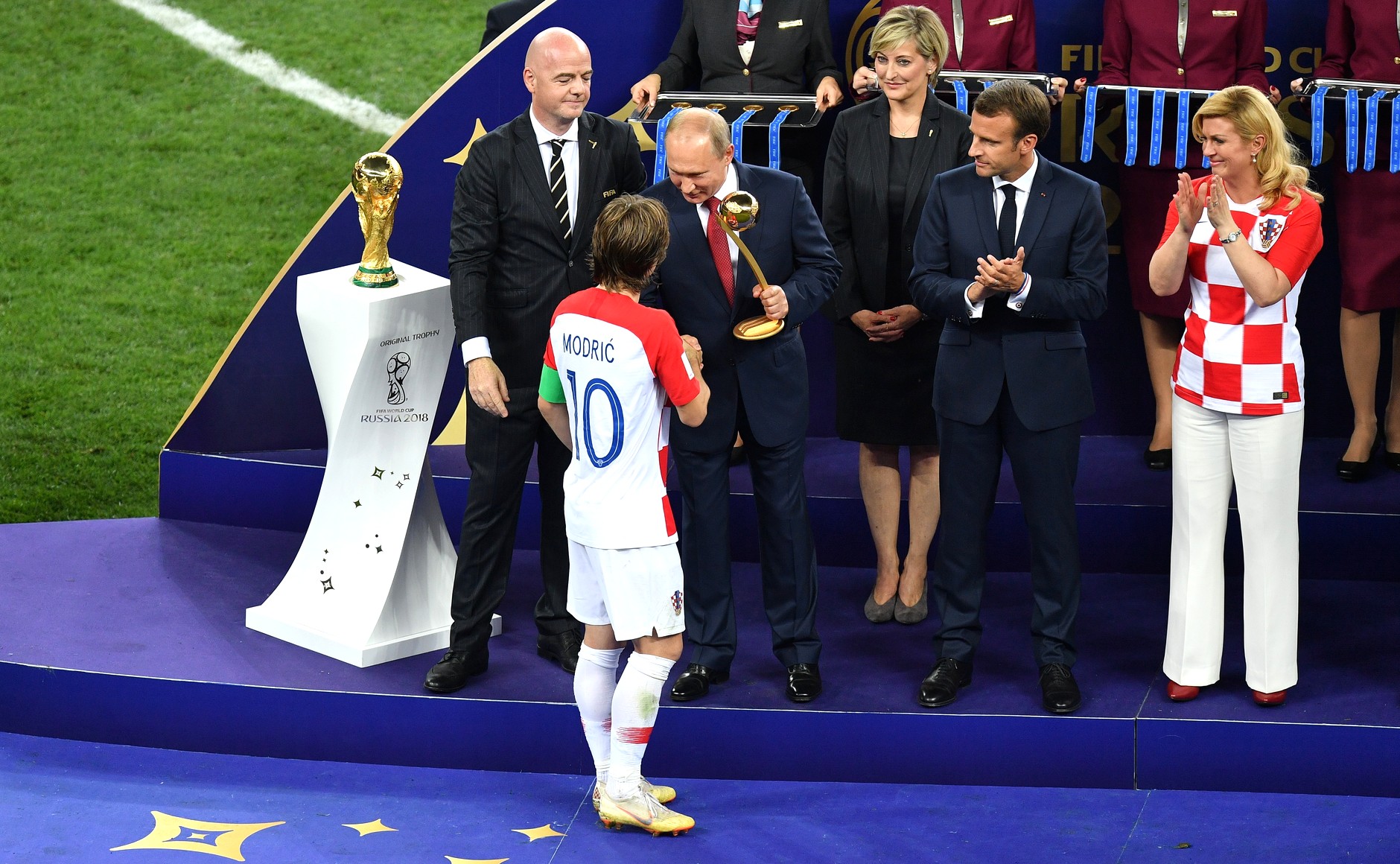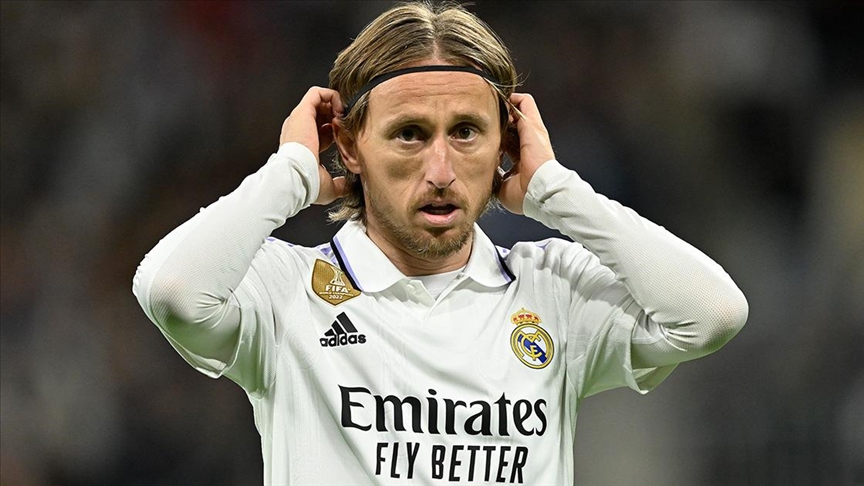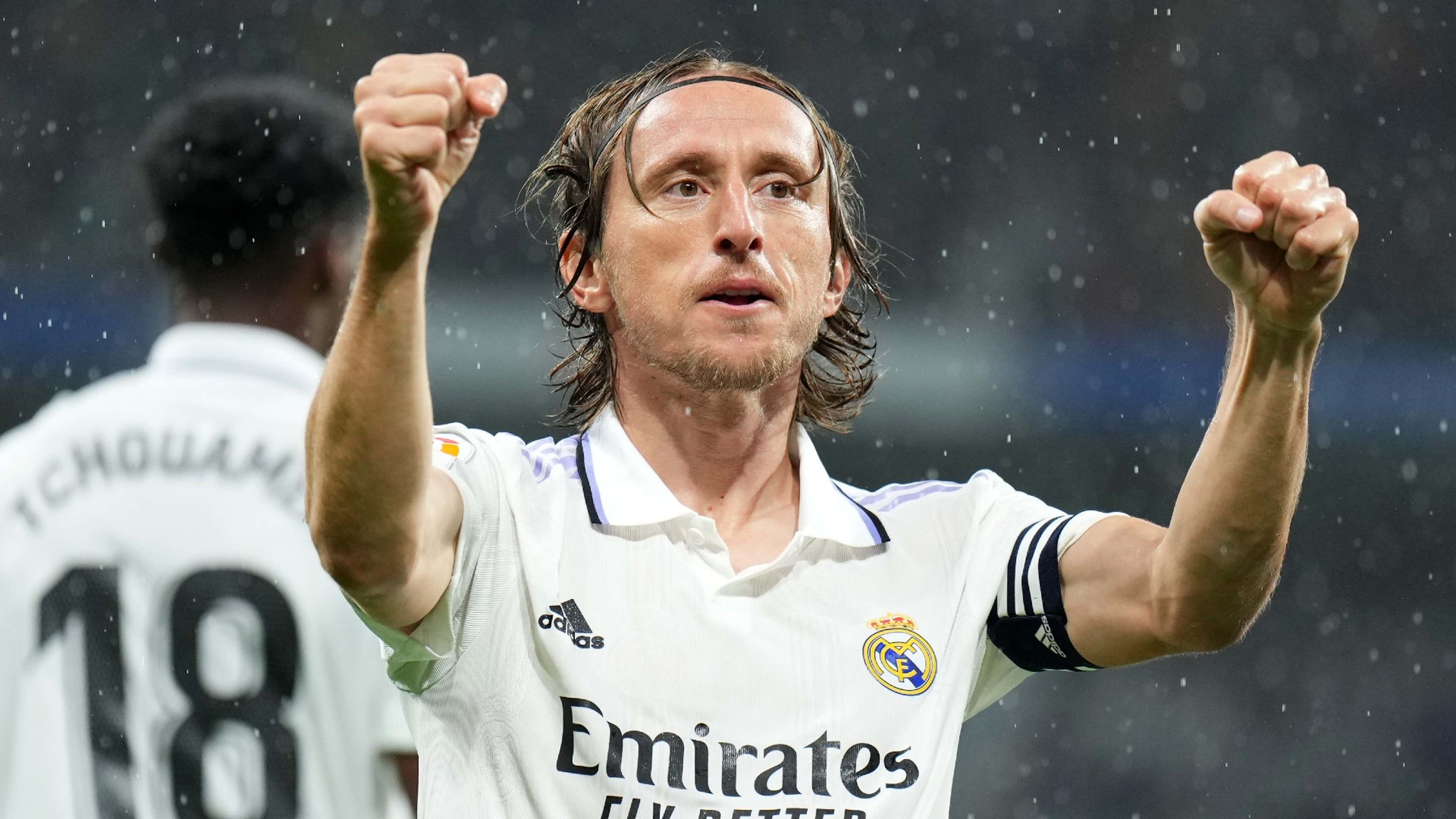Luka Modric

Luka Modrić, born on 9 September 1985, is a highly esteemed Croatian professional footballer renowned for his exceptional skills as a midfielder. Currently donning the jersey of La Liga powerhouse Real Madrid, he also proudly serves as the captain of the Croatia national team. Modrić's versatility is evident in his ability to play various midfield roles, primarily excelling as a central midfielder, while also showcasing proficiency as an attacking or defensive midfielder. Widely hailed as one of the greatest midfielders in the history of football, he holds the esteemed title of the greatest Croatian footballer ever.
Modrić embarked on his professional journey with Croatian club Dinamo Zagreb in 2003, with subsequent loan spells at Bosnian side Zrinjski Mostar and Croatian side Inter Zaprešić. His debut for Dinamo in 2005 marked the beginning of a remarkable career that led him to the Premier League club Tottenham Hotspur in 2008. During his tenure at Tottenham, Modrić played a pivotal role in securing UEFA Champions League qualification in 2010, a significant achievement after nearly five decades for the club. In 2012, he made a high-profile move to Real Madrid, with the transfer fee reaching £30 million. His second season with the club saw him clinch the 2013-14 Champions League title, earning a deserved spot in the squad of the season.

Under the management of Zinedine Zidane, Modrić played a crucial role in Real Madrid's historic three consecutive Champions League titles from 2015–16 to 2017–18, consistently earning recognition in the squad of the season. His contributions have resulted in an impressive tally of 24 major trophies at Madrid, including five UEFA Champions League titles, three La Liga titles, and two Copa del Rey titles.

Modrić's individual brilliance has not gone unnoticed, as he claimed the prestigious Ballon d'Or in 2018, breaking the Lionel Messi-Cristiano Ronaldo dominance since 2007. Other accolades in his illustrious career include the Best FIFA Men's Player, the UEFA Men's Player of the Year Award, and the IFFHS World's Best Playmaker in 2018. His consistent excellence is further underscored by six appearances in the FIFPRO World 11 and three selections in the UEFA Team of the Year.

On the international stage, Modrić made his debut for Croatia in March 2006, making significant contributions in major tournaments from UEFA Euro 2008 to 2020 and the FIFA World Cup from 2006 to 2022. Notably, he led Croatia to the 2018 World Cup final, securing the Golden Ball for his outstanding performance. At the 2022 World Cup, he guided the team to a commendable third-place finish, earning the Bronze Ball. In March 2021, Modrić achieved the milestone of becoming Croatia's most capped player in history. Additionally, he has been honored as the Croatian Footballer of the Year an impressive twelve times between 2007 and 2023, solidifying his status as a football legend.

Early Life of Luka Modrić: A Tale of Resilience and Football
Luka Modrić, the renowned Croatian football maestro, was born on 9th September 1985, in Zadar, Croatia. His roots can be traced to the hamlet of Modrići, nestled within Zaton Obrovački, situated on the southern slopes of the majestic Velebit mountain, north of the city of Zadar in SR Croatia, then a constituent republic within SFR Yugoslavia. The eldest child of Stipe Modrić and Radojka Dopuđ, Luka's early years were marked by humble beginnings and a deep connection to his familial heritage.
Raised in the stone house of his paternal grandfather, after whom he was named, Luka spent his formative years shepherding goats in the serene surroundings of Modrići. However, the tranquility of his childhood was disrupted by the Croatian War of Independence in 1991. As the conflict intensified, the Modrić family, along with countless others, found themselves compelled to flee the area for safety.

Tragedy struck the Modrić family during this tumultuous period. Luka's grandfather, Luka, met a tragic end, executed by Serb rebels associated with the police of SAO Krajina in December 1991 near their Modrići residence. Subsequently, the family's refuge, the stone house, was reduced to ashes by the ravages of war. Luka, now a refugee, sought solace with his family in the Hotel Kolovare for seven years before relocating to the Hotel Iž, both situated in Zadar.
Amidst the hardships of displacement, Luka Modrić found refuge and resilience through football. His father, joining the Croatian Army as an aeromechanic, provided a semblance of stability during the tumultuous times. In the midst of incessant bombings that plagued the city, football emerged as a means for Luka to escape the harsh realities of war.

Recalling those challenging times, Modrić acknowledges the profound impact it had on shaping his character. Despite the surrounding turmoil, his childhood remained relatively unaffected, thanks to the camaraderie formed with fellow children whose parents shielded them from the harsh truths of war.
In the face of adversity, Modrić's journey into football began in the unlikeliest of places – a hotel parking lot. In 1992, he embarked on his academic and sporting pursuits simultaneously, entering primary school and a sporting academy. The financial burden was eased with the meager resources the family possessed, often supplemented by the generosity of Modrić's uncle.

As a young boy, Modrić drew inspiration from football luminaries Zvonimir Boban and Francesco Totti. Their prowess on the field ignited a passion in him, a flame that would eventually evolve into a stellar football career.
Luka Modrić's early life is a testament to resilience, courage, and the transformative power of football in the most challenging circumstances. From the echoes of war, emerged a football legend whose journey embodies the indomitable spirit of overcoming adversity through sheer determination and a love for the beautiful game.

Luka Modrić: A Storied Journey on the International Stage
Laying the Foundation:
Luka Modrić's international career commenced at the youth level, where he showcased his talents playing for various Croatian teams, including the under-15, under-17, under-18, under-19, and under-21 squads. His debut for the full national team occurred on 1 March 2006, in a friendly match against Argentina, a game that Croatia emerged victorious with a scoreline of 3–2.
2006–2008: First Major Tournaments:
Modrić's initial appearances in major tournaments were as a substitute in the 2006 FIFA World Cup group stage matches against Japan and Australia. Under new manager Slaven Bilić, Modrić's influence grew, and he scored his first international goal in a friendly against Italy in 2006. His remarkable performances continued, especially during UEFA Euro 2008, where he became the youngest-ever goalscorer for Croatia at the European Championships.
2008–2016: Subsequent Struggles:
In the following years, Modrić faced challenges as Croatia struggled to qualify for the 2010 World Cup and faced disappointment in the UEFA Euro 2012. Despite personal accomplishments, such as being named Man of the Match, Croatia did not advance from the group stage, impacting Modrić's inclusion in the Team of the Tournament..jpg)
2016–2018: Golden Ball of the 2018 World Cup:
Modrić assumed the captaincy for Croatia's 2018 World Cup qualifying campaign. His exceptional performances, including leading Croatia to the World Cup final, earned him the Golden Ball for the best player of the tournament. Despite the loss to France, Modrić's contributions solidified his status as a football icon./origin-imgresizer.eurosport.com/2022/12/05/3503413-71415428-2560-1440.jpg)
2019–2022: Bronze Ball of the 2022 World Cup:
Modrić continued to excel, scoring crucial goals in the Euro 2020 qualifiers and becoming Croatia's most capped player. His exceptional displays in the 2022 World Cup, including winning the Bronze Ball, showcased his enduring prowess on the international stage.
2023–Present: Euro 2024 Qualifying and Nations League Finals:
Modrić, defying age, became the oldest player for Croatia in a Euro 2024 qualifying match. His stellar performance in the UEFA Nations League Finals in 2023, where Croatia reached the final, earned him widespread acclaim. Despite losing in the final, Modrić's leadership and contributions secured him the Man of the Match title.
Luka Modrić's international journey is a testament to his resilience, leadership, and enduring impact on the pitch. From youthful beginnings to becoming a football legend, his legacy continues to evolve on the global stage, leaving an indelible mark on Croatian football history.
References;
- "FIFA World Cup Russia 2018: List of Players: Croatia" (PDF). FIFA. 15 July 2018. p. 7. Archived from the original (PDF) on 11 June 2019.
- Hugman, Barry J., ed. (2010). The PFA Footballers' Who's Who 2010–11. Mainstream Publishing. p. 290. ISBN 978-1-84596-601-0.
- "Player Profile". Real Madrid CF. Archived from the original on 24 November 2017. Retrieved 18 November 2017.
- "Lȗka". Hrvatski jezični portal (in Serbo-Croatian). Archived from the original on 26 December 2018. Retrieved 17 March 2018. Lȗka
- "mȍdar". Hrvatski jezični portal (in Serbo-Croatian). Archived from the original on 26 December 2018. Retrieved 17 March 2018. Módrić
















































